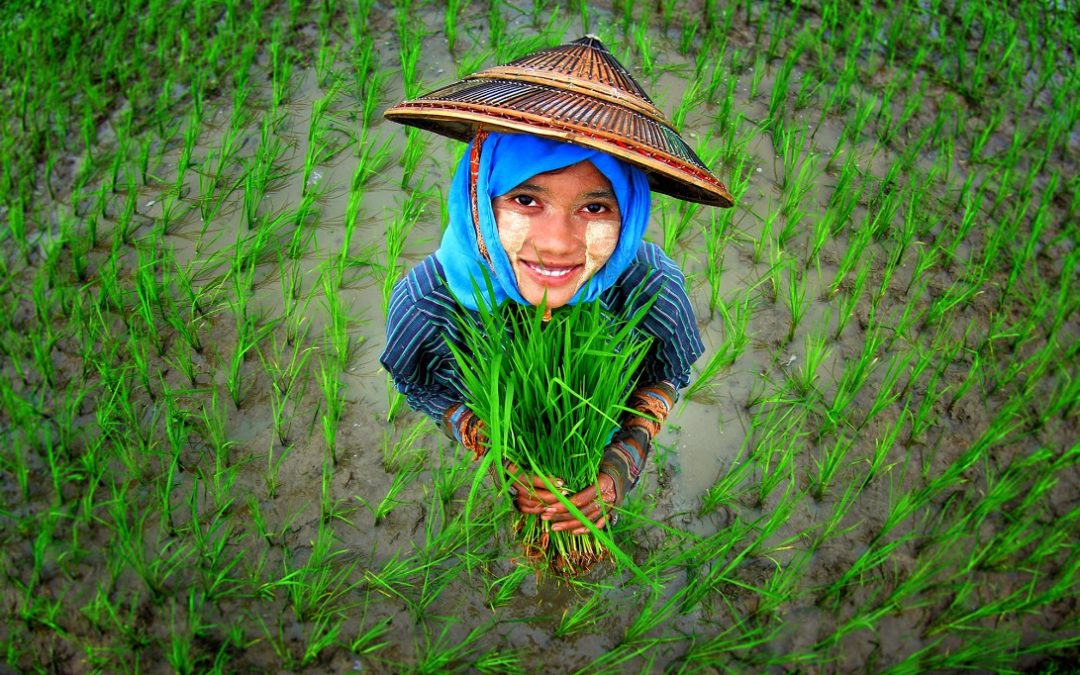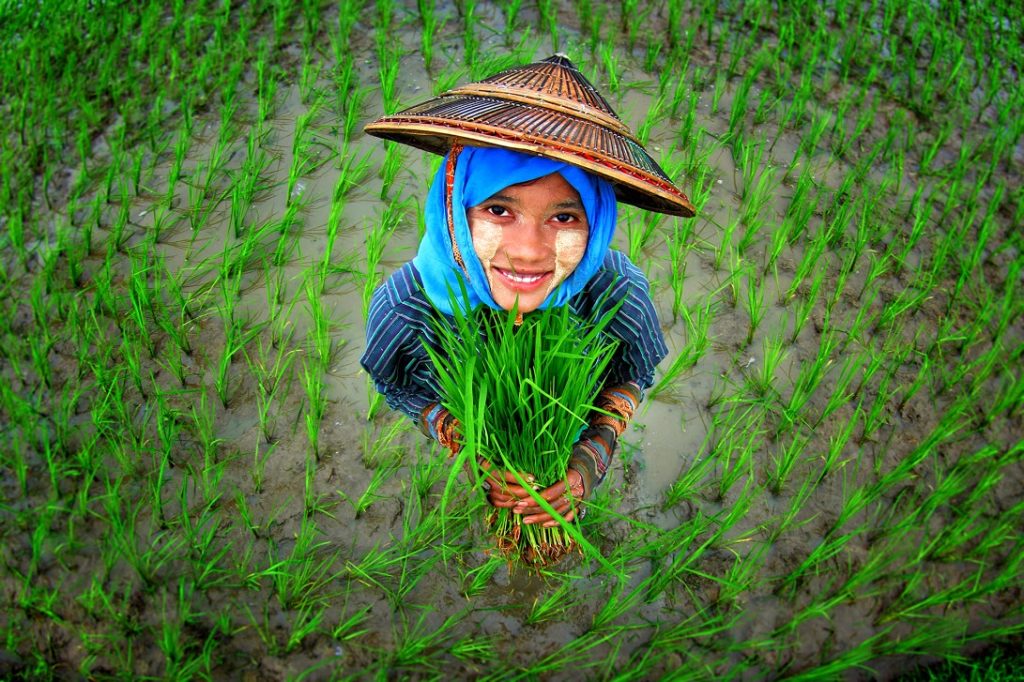Personalized fertilizer knowledge for smallholder farmers in Myanmar
This blog is a submission to the Community of Practice on Data-Driven Agronomy’s blog competition on digital extension—an opportunity for those working in the digital extension in agriculture field to share their experiences with their technologies, business models, key challenges, and major bottlenecks, as well as how they solved such challenges, when creating and implementing innovative solutions.
San San is a Myanmar rice farmer that wants fertilizer knowledge that increases her income and reduces her risk. San San has no access to soil testing and rare access to agronomists, but she has recently acquired her very own smartphone.
In response, the International Rice Research Institute (IRRI) is developing an interoperable smartphone application that personalizes fertilizer knowledge for smallholder farmers like San San. To support this project, RiseHarvest, a social enterprise, has interviewed and tested prototypes with 172 rice growers, 20 government extension workers, and more than 30 other value chain actors (mostly one-to-one).
The tool will be piloted by farmers for the next two rice seasons and scaled out in September 2020 (assuming the pilots are successful). The impacts targeted are inclusive rural development, food security, and environmental sustainability.
USER JOURNEY: Most farmers have the literacy, device ownership, and network access required to use the tool. However, few farmers have the digital proficiency required to access the tool independently. In response, IRRI is building the tool to enable farmers to access the tool themselves or with support from extension workers or friends.
BUSINESS MODEL: IRRI is testing approaches to integrate the tool with agri-apps already being used by Myanmar farmers and extension workers. This integration would provide a mechanism for scaling and sustaining the tool.
INNOVATION:
- Advice and learning. Some farmers want prescriptive recommendations (“I already have enough to think about, just tell me what fertilizer I need”). Other farmers, like San San, want explanations (“I need to be convinced,” “I’ll choose what bits work for me,” “I want to teach others.”). We are testing the scope to build for both by enabling users to tap any piece of information and access explanations on-demand.
- Country and value chain selection. Myanmar has high rural literacy, smartphone penetration (>80%) and network access. Rice is grown in Myanmar at scale (three million rice farming families), in a semi-reliable value chain and with high farmer demand for improved fertilizer knowledge.
- Remote access. Farmers often lack face-to-face contact with those that can support them. In response, we are testing approaches for farmers’ friends and extension workers to generate and share fertilizer knowledge remotely from farmers.
What are the biggest challenges you have faced? How did you overcome them?
Below are our top five headaches (listed in order of head hurting):
#1 Accounting for farmers’ economic constraints
Fertilizer knowledge is useless to farmers if they cannot afford to implement it, or, worse, the knowledge optimizes for yield over risk/profit.
We tested integrating farmers’ fertilizer budget into the fertilizer recommendations, but farmers change their budget mid-season based on changes in the weather, crop conditions, and capital availability.
We are now testing imprecise fertilizer budgeting and different fertilizer recommendation options with different yield targets and costs.
#2 Flexible funding
New learnings about user needs consistently flip our approach, and it’s hard to find funders that embrace this dynamism. We are grateful to have received understanding and flexible support from Genesis Incubator, Thought for Food Challenge, and Grow Asia (via the Digital ASEAN Accelerator).
#3 Candid and inclusive user testing
To protect against potential bias in our user testing, we are very careful with how we introduce ourselves, sequence our questions and invite feedback (e.g. we often rely on choice experiments to test whether something creates value). We also actively pursue diversity in our user-testing team, the users we consult, and the geographies in which we test.
#4 Validating the tool from the perspective of farmers
Validation for scientists is very different to validation for farmers. We offered ‘test’ recommendations to farmers for them to test on small parts of their farm. Some farmers were interested, but most dismissed the concept explaining test plots are too time-consuming. In response, we are now testing farmer field day videos and testimonies.
#5 Sharing user insights with technical developers
It’s hard to share user insights through discussions and reports as part of the learning is experiential. Carolyn Florey (IRRI’s Technology for Development Lead) understands this and skillfully creates opportunities for the whole team to experience user testing.
See this user testing report for more details about user wants and needs for digital fertilizer advisory in Myanmar.
In your opinion, what is the main opportunity for digital extension services? What recommendations would you make in order to realize this opportunity?
Aside from integrating with financial services and market linkages, I reckon the biggest opportunity is integrating algorithmic advisory with facilitated learning and knowledge sharing. Algorithmic advisory is risky because it will never capture the unique knowledge, constraints, and priorities of each individual farmer. We could integrate 2000 variables to prescribe the perfect planting depth only for rats to eat the seeds.
My suggestion is to let farmers localize the agronomy by combining algorithmic advice with facilitated learning, experimentation, and knowledge sharing. The ‘how’ is simply to ideate and iterate different models with farmers and scaling partners from the very beginning.
***
Photo: Khant Zaw / Bioversity International. Girl surrounded by rice plants in Pyay, Myanmar.
Click here to view the full list of articles competing in the digital extension services blog competition.
January 21, 2020
Sam Coggins
Co-Founder
RiseHarvest
Latest news






